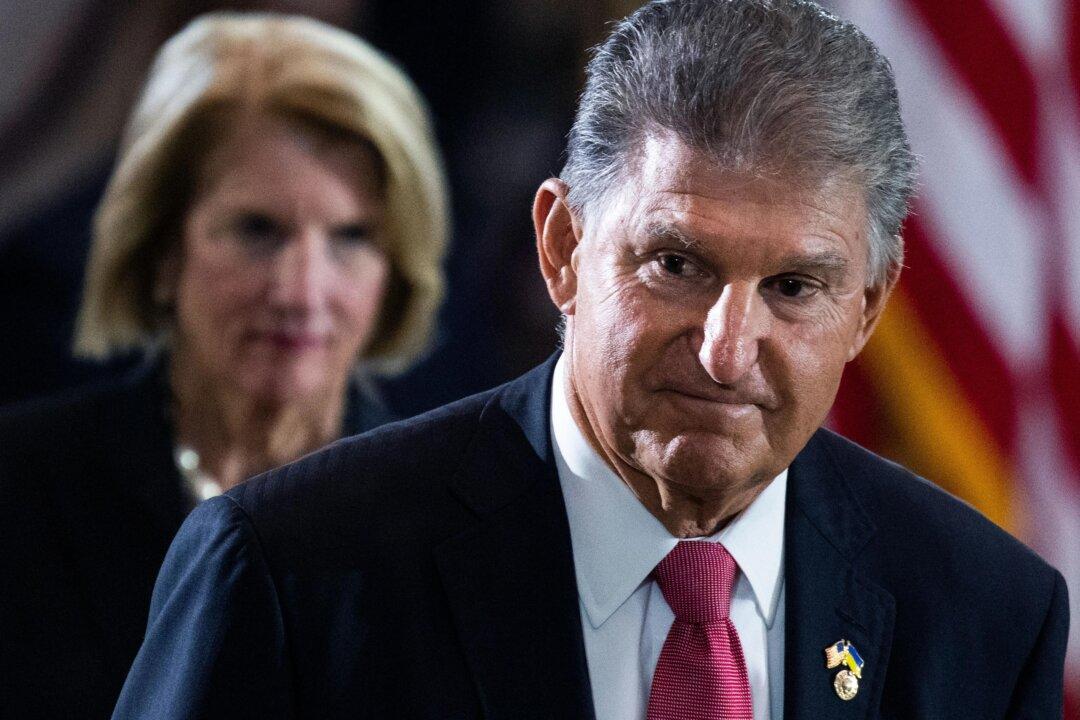During a Sept. 20 press conference, Sen. Joe Manchin (D-W. Va.) blasted Republicans for refusing to side with him on fossil fuel permitting reform as part of the upcoming government funding bill.
Following the passage of the $700 billion Inflation Reduction Act, which was largely negotiated between Manchin and Senate Majority Leader Chuck Schumer (D-N.Y.) behind closed doors, it was revealed that as part of the deal Schumer agreed to get Manchin the votes for fossil fuel permitting reforms.





